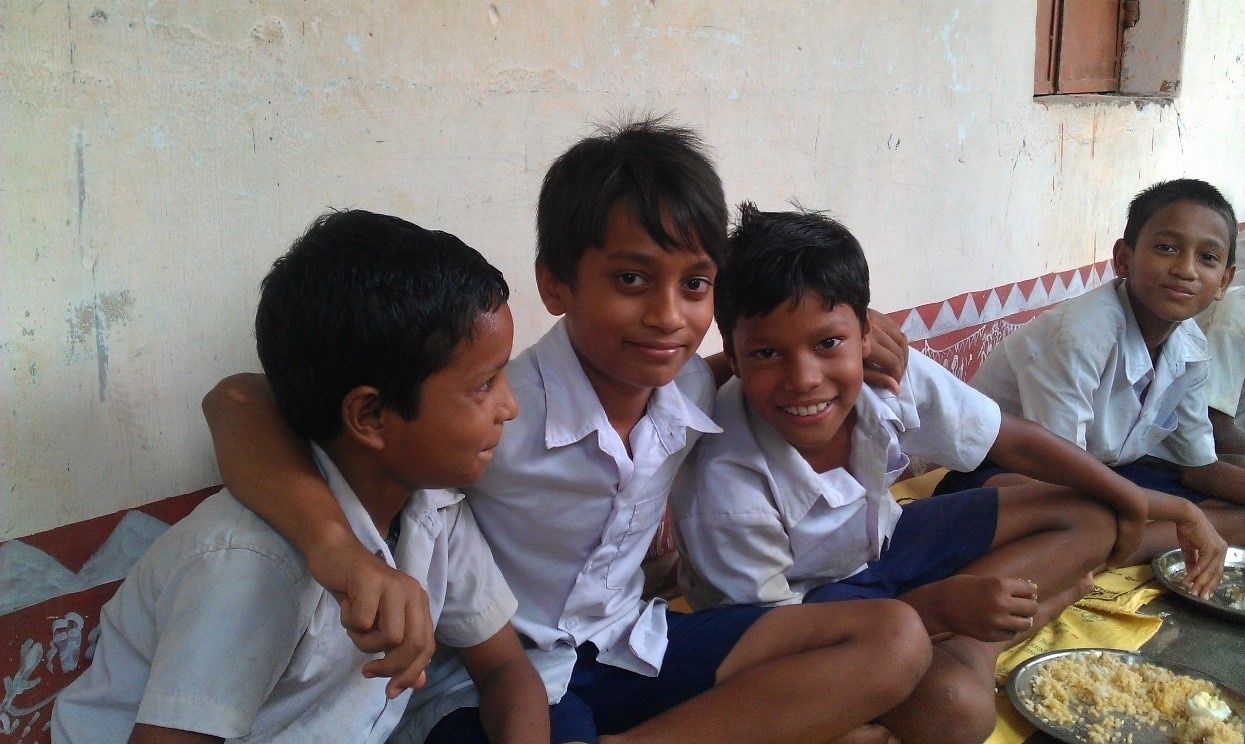News
October 31, 2022
New research signals global hidden hunger emergency
Data published in The Lancet suggest more people suffer from hidden hunger than previously estimated. So how can we provide all populations with a foundational level of nutrition?
Summary
- Hidden hunger - a persistent micronutrient deficiency – was previously estimated to have affected one in four people or 2 billion people worldwide.
- A new study published in The Lancet has recently shown that the true number of people living with hidden hunger is much greater than what we feared.
- The new estimates suggest that over half of all pre-school aged children and over two-thirds of women of reproductive age fail to consume the most crucial nutrients needed for growth and development. Read on to find out how governments, NGOs and private businesses can work collaboratively to tackle this urgent international emergency.
As millions of families around the world gather to celebrate Diwali, Thanksgiving, Christmas or Hannukah in the coming weeks, food will sit central to their celebrations. Yet how many of those around the table, young and old, will be suffering from hidden hunger – a persistent micronutrient deficiency compromising their immune systems and stunting the growth and development of their children? More than we feared.
For 30 years, we have worked under the estimate that around one in four people suffer from hidden hunger – 2 billion worldwide. Even then, the challenge seemed insurmountable. Now, new research published in The Lancet shows that the true number is far higher.
That figure of 2 billion was always limited, being based only on cases of anaemia. In this study, The Lancet takes a broader, more accurate view of malnutrition, including anyone lacking in one or more key micronutrients. The effect this has on the data, and our understanding of the problem, is staggering. By this measure, more than half of all pre-school aged children and over two-thirds of women of reproductive age suffer from hidden hunger. We can only guess at the rates amongst other groups – older children, adolescents, men, older adults – but even with conservative estimates, the true figure for malnutrition is terrifyingly high: at least 3 billion people whose diets don’t contain the most fundamental nutrients.
A global problem
South Asia, East Asia and Sub-Saharan Africa, where hidden hunger is driven simply by poor access to nutritious foods, are the worst affected. In some countries in these regions, the figures can be shockingly high, with up to 9 in every 10 women and children affected.
However, perhaps the most revealing finding of this report is how bad the situation is in high-income countries, where nearly half of all adults suffer from some sort of micronutrient deficiency.
This issue is Europe’s as much as Africa’s, America’s as much as East Asia’s. Everywhere we look, there are masses of people who face illnesses and under-development, physical and cognitive. The evidence is now clear: there is no country on earth whose health and prosperity isn’t threatened by hidden hunger.
Global solutions
The solutions are there. Fortified rice, alongside other fortified staples like flour, oil and salt, is a direct way to ensure that basic foods provide all populations – whether in low or high-income countries – with a foundational level of nutrition. In acute cases, Multiple Micronutrient Supplements (MMS) and Micronutrient Powders (MNPs) can be administered quickly, boosting the nutrition and health of pregnant women and vulnerable children populations. The global shocks that have raised food prices – war in Ukraine, an energy crisis, inflation – should focus our minds. In tough times, millions will forego costly fruit and vegetables for more affordable staples. At the very least we can ensure those staples provide basic nutrition.
“There is no good reason why billions of people should be prevented from reaching their full potential due to micronutrient deficiencies. We have proven, cost-effective solutions. All sectors need to work together.”
Yannick Foing – Global Director, dsm-firmenich Nutrition Improvement
Urgency is needed. Governments, NGOs and private businesses must move with purpose. We must find ways to collaborate, now, so that we can reach more people with high quality interventions like fortified rice. If we can, we provide millions around the world with the foundation to not only survive the pressures they face right now, but the health and strength to build something better for the future.
This is what dsm-firmenich Nutrition Improvement is fighting for. We want a global nutrition system equal to the scale of the challenge. For our part, we can provide effective products to fill the micronutrient gap, and technical support for our public and private partners.
Explore more
Together, we can deliver quality nutrition interventions everywhere they are needed. Learn more about our Nutrition Improvement segment.
Related Content
-
-
Vitamins
Recommended Reading
-

10 December 2025
Innovation focus: what sets us apart from competition
-

30 October 2025
What is fortified rice? A complete guide to rice fortification
-

24 October 2025
Anemia: a global crisis demanding to be SEEN
Quick links
Customized blends of functional ingredients in one single, efficient premix.
Streamline your product development process and get to market faster.
From trade shows to conferences and other industry events, find out where you can meet us next.
Talking Nutrition, Health & Care
Explore new science, consumer insights, industry news and more in our latest articles.
Discover educational whitepapers, webinars, publications and technical information.
Request samples, place orders and view product documentation.